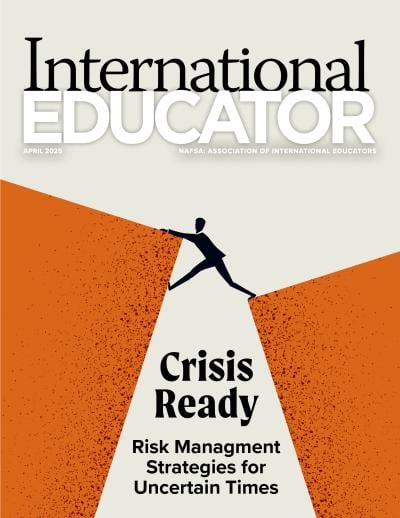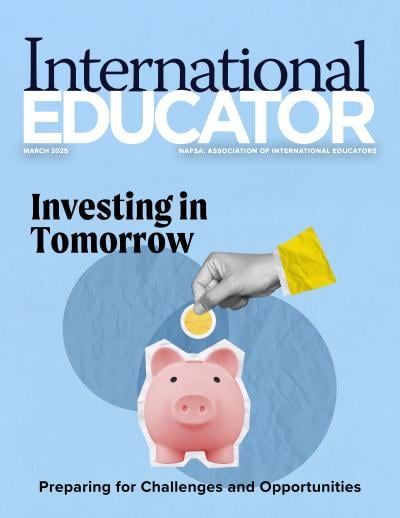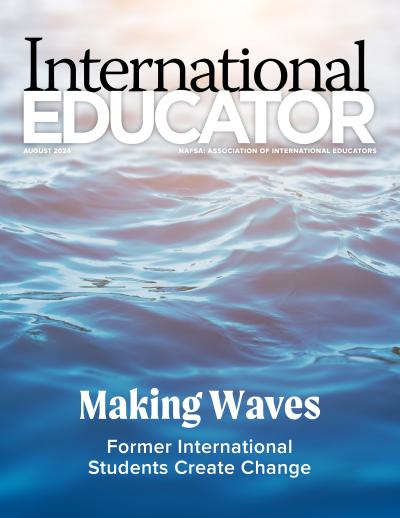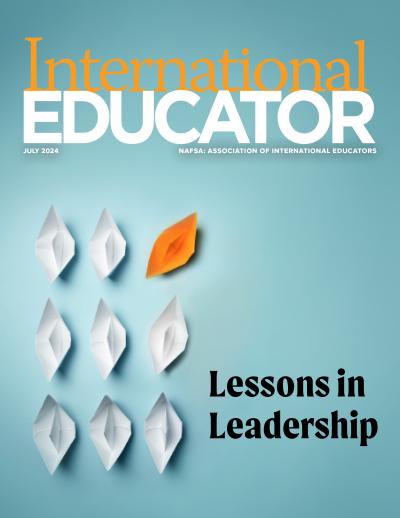The Power of One Person

In the fall of 2006, I was a sophomore at Whitworth University. Not certain of what I was getting myself into, I went to my first-ever study abroad information session. The session was about a faculty-led course that was going to South Africa for a three-week, team-taught experience. The class was to be led by Professors John Yoder (history), Andrea Naccarato (theology), and Ronald Pyle (communication). As they spoke about the cross-country trek—which would stop in faraway places like Cape Town, Stellenbosch, Bantustans, Durban, and Johannesburg—my mind lit up.
As a first-generation, low-income young man of color, I had only dreamt of traveling to such distant lands as a member of the U.S. military—never as a civilian and certainly not as a student.
Nevertheless, I was beside myself with excitement about the South Africa program. Over the next year and a half, I worked together with my family to raise the funds to go on the trip. I worked as a barista and on my then girlfriend’s (now spouse’s) family farm to save the money to go. The trip was $5,000 (roughly $7,400 today). I had $2,000 when the time came to pay for the experience. By the end of that fall, I had applied for a handful of scholarships. My parents chipped in a not-insignificant amount, but I was still shy of the $5,000 by about $750. I was crushed, and there seemed to be nothing I could do.
I went to Ronald Pyle, my faculty adviser, and told him my circumstances. It’s important to note that Ron is a kind, generous, thoughtful man. When I had troubles at home, Ron and his late wife, Julie, opened their home to me. When a major milestone in my academic experience occurred (like an award or an event I led), he would show up to congratulate me. The day I talked to him, Ron did not make any promises or grand declarations. I remember him looking at me in the caring way he always would when I faced a difficult challenge. I remember him saying, “Let me look into this.”
Weeks went by, and the uncertainty I felt grew. Just before Thanksgiving break, I received my boarding pass to South Africa via campus email. Ron did not confirm his efforts to me. He did not say a word. He let that boarding pass speak for itself. “Get on the plane, Caldwell,” the boarding pass seemed to say. “Your presence on this trip is essential.”
A Life-Changing Experience
In the beginning of January 2008, my classmates and I boarded our plane to Heathrow in the SeaTac airport. Twelve hours later, I was in London for the first time in my life. We boarded another plane a few hours later for the 14-hour flight to Cape Town, South Africa.
Over the next three weeks, I met a wide array of people. Folks from different religious traditions. Folks who lived in wealth. Folks who lived in dire poverty. Folks who lived in lavish health. Folks who were in their final days of life, HIV/AIDS siphoning off their last breaths. I was introduced, quite viscerally, to the horrors of Robben Island, the Soweto Uprising, the Jim Crow era funhouse mirror of apartheid, and the de jure/de facto racism that the African National Congress has sought to dismantle to mixed results, just like in the United States. In brief, this trip expanded my understanding of the world and altered the trajectory of my life.
In brief, this trip expanded my understanding of the world and altered the trajectory of my life.
This trip had a profound effect on my future: I would never have developed an understanding of the global contexts of race, poverty, law, corruption, kindness, mercy, and so much more if I had not gone to South Africa. If Ron had not stepped in and advocated for me, I would have never had these experiences. He worked behind the scenes to muster the funds to send me on an adventure that changed my life.
Passing It On
I am happy I have had the opportunity to tell him this myself. But the point of this essay is to show how our lives have been altered and how we do a good turn by others.
This last summer, I had the privilege to take 17 students to Japan for a three-week study abroad course. The class focused on how Japanese animators encode Japanese social values into their cartoons and export said values to the world. Ten students in the group identified as first-generation, low-income, students of color, or a combination of those. Over the year and a half that we prepared for the trip, their challenges, fears, frustrations, and doubts reminded me of my own from 16 years earlier.
On more than one occasion, I heard their concerns about going on the trip: finances, family challenges, academics, over-booked summer schedules, professional relevancies, and so much more. Just like Ron, I did not always have the “right” answer, but I was always able to say, “Get on the plane. Your presence on this trip is essential.”
Just like Ron, I did not always have the “right” answer, but I was always able to say, “Get on the plane. Your presence on this trip is essential.”
Sixteen years later, South Africa and my experiences there often pop into my head, providing some new insight or some frame of reference to help me see the world more completely. I am so thankful that Ron Pyle diverted my life. Like a great boulder in a stream, that experience disrupted the flow of complacency and prevented arbitrary debris from hindering my growth. Hopefully, I have started a long career of doing the same. •
Chris Caldwell is the senior director for international, intercultural, and service engagement at the University of Findlay.
About International Educator
International Educator is NAFSA’s flagship publication and has been published continually since 1990. As a record of the association and the field of international education, IE includes articles on a variety of topics, trends, and issues facing NAFSA members and their work.
From in-depth features to interviews with thought leaders and columns tailored to NAFSA’s knowledge communities, IE provides must-read context and analysis to those working around the globe to advance international education and exchange.
About NAFSA
NAFSA: Association of International Educators is the world's largest nonprofit association dedicated to international education and exchange. NAFSA serves the needs of more than 10,000 members and international educators worldwide at more than 3,500 institutions, in over 150 countries.
NAFSA membership provides you with unmatched access to best-in-class programs, critical updates, and resources to professionalize your practice. Members gain unrivaled opportunities to partner with experienced international education leaders.















